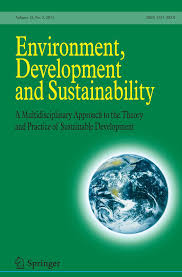View Item
- xmlui.general.dspace_homeCentros Regionales y EEAsCentro Regional Patagonia NorteEEA BarilocheArtículos científicosxmlui.ArtifactBrowser.ItemViewer.trail
- DSpace Home
- Centros Regionales y EEAs
- Centro Regional Patagonia Norte
- EEA Bariloche
- Artículos científicos
- View Item
Socio‑cognitive constraints and opportunities for sustainable intensification in South Asia: insights from fuzzy cognitive mapping in coastal Bangladesh
Abstract
Appreciating and dealing with the plurality of farmers’ perceptions and their contextual knowledge and perspectives of the functioning and performance of their agroecosystems— in other words, their ‘mental models’—is central for appropriate and sustainable agricultural development. In this respect, the sustainable development goals (SDGs) aim to eradicate poverty and food insecurity by 2030 by envisioning social inclusivity that incorporates the
[ver mas...]
Appreciating and dealing with the plurality of farmers’ perceptions and their contextual knowledge and perspectives of the functioning and performance of their agroecosystems— in other words, their ‘mental models’—is central for appropriate and sustainable agricultural development. In this respect, the sustainable development goals (SDGs) aim to eradicate poverty and food insecurity by 2030 by envisioning social inclusivity that incorporates the preferences and knowledge of key stakeholders, including farmers. Agricultural development interventions and policies directed at sustainable intensification (SI), however, do not sufficiently account for farmers’ perceptions, beliefs, priorities, or interests. Considering two contrasting agroecological systems in coastal Bangladesh, we used a fuzzy cognitive mapping (FCM)-based simulation and sensitivity analysis of mental models of respondents of different farm types from 240 farm households. The employed FCM mental models were able to (1) capture farmers’ perception of farming system concepts and relationships for each farm type and (2) assess the impact of external interventions (drivers) on cropping intensification and food security. We decomposed the FCM models’ variance into the first-order sensitivity index (SVI) and total sensitivity index (TSI) using a winding stairs algorithm. Both within and outside polder areas, the highest TSIs (35–68%) were observed for effects of agricultural extension on changes in other concepts in the map, particularly food security and income (SI indicators), indicating the importance of extension programs for SI. Outside polders, drainage and micro-credit were also influential; within polders, the availability of micro-credit appears to affect farmer perceptions of SI indicators more than drainage. This study demonstrated the importance of reflection on the differing perspectives of farmers both within and outside polders to identify entry points for
development interventions. In addition, the study underscores the need for micro-farming systems-level research to assess the context-based feasibility of introduced interventions as perceived by farmers of different farm types.
[Cerrar]

Author
Aravindakshan, Sreejith;
Krupnik, Timothy J.;
Shahrin, Sumona;
Tittonell, Pablo Adrian;
Siddique, Kadambot H. M.;
Ditzler, Lenora;
Groot, Jeroen C.J.;
Fuente
Environment, Development and Sustainability 23 : 16588–16616 (2021)
Date
2021-07
Editorial
Springer
ISSN
1387-585X
1573-2975
1573-2975
Formato
pdf
Tipo de documento
artículo
Palabras Claves
Derechos de acceso
Abierto
 Excepto donde se diga explicitamente, este item se publica bajo la siguiente descripción: Creative Commons Attribution-NonCommercial-ShareAlike 2.5 Unported (CC BY-NC-SA 2.5)
Excepto donde se diga explicitamente, este item se publica bajo la siguiente descripción: Creative Commons Attribution-NonCommercial-ShareAlike 2.5 Unported (CC BY-NC-SA 2.5)


